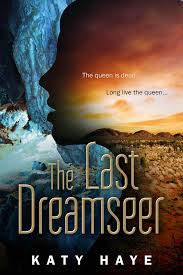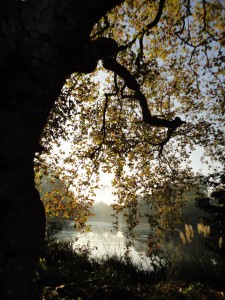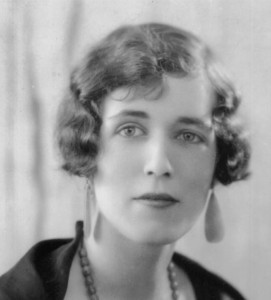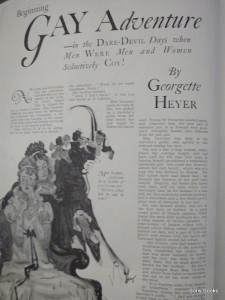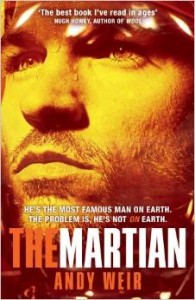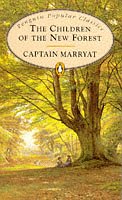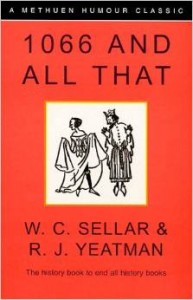Archive for the ‘Reading’ Category
Can an Orc Change?
Just a year ago I was writing a 5 star review on Amazon for The Last Gatekeeper, a debut Young Adult novel by Katy Haye. Now she has written the second in her Chronicles of Fane series. The Last Dreamseer, and it is out today and, for the launch week only (November 27th – December 4th), the novel is on sale for 99c./99p, after which it will return to a permanent price of $2.99/£2.49. I haven’t read it yet, but I shall, as soon as it’s on my Kindle. Gatekeeper kept me up until the small hours wanting to know what happened.
The arrival of this novel started me thinking about why I so enjoy fantasy fiction and what is special about the Young Adult end of the genre in particular.
And I suppose the first, the universal element is the opportunity it gives us to marvel. In our rationalist world we are taught to deconstruct, analyse, assess, evaluate. All excellent tools to inform judgement. But wonder is another part of ship. You don’t have to suspend judgement, just to experience amazement, that sense of something immense and powerful.
Who ever said the Niagara Falls were a bit chocolate boxy? Who judges the forest? Wind? Water?
A sense of wonder is followed by the desire for knowledge. And this is where we get into territory that Young Adult fiction is so good at. Consider Inkheart by Cornelia Funke, a particular favourite of mine. Or the wonderful Diana Wynne Jones’s Witch Week. (Pretty much anything by Diana Wynne Jones actually.) Or the strange and scary Chime by Franny Billingsley – tag line ‘The story of a wicked girl has no true beginning. Knowledge is good and necessary but it is never enough.
Knowledge on its own cannot find solutions. You also have to overcome fear, understand consequences, have some idea what drives other people and know yourself. And then Choose.
Can you – do you want to –leap mountains in a single bound? Do you go through hidden doors to who knows where?
And this is where much Young Adult fiction is so interesting. It seems to me that Tolkien said there were temptations to overcome and times of trial but your identity was set and the moral path was laid out. An orc was an orc. Writers like the ones I’ve named, including Katy Haye, seem to say that you have to find both for yourself. For someone like me, ineradicably committed to a happy ending, that is irresistible. Maybe someday, somewhere, someone will write the book where an orc finds he’s a gardener. Please.
Georgette Heyer and her Readers
Fans of Georgette Heyer will feel a quiet sense of satisfaction at the news that English Heritage are to place one of their Blue Plaques on her first home in Wimbledon next month. It is another step towards the public acknowledgement of a truth which, if not yet held universally, has been acknowledged by countless people all round the world for a long, long time. She is a Treasure.
But, as is the case with so many Treasures, we can’t all agree why and, like every writer I know, she does have her detractors. (Shakespeare? Couldn’t plot for toffee. When people praised WS’s manuscript for his ‘never blotting out line’, Jonson wittily replied, ‘Would he had blotted a thousand.’ Killer punch there, Ben.)
Carmen Callil, a woman of whose publishing achievements I am in awe, allegedly opined that Heyer took Jane Eyre and rejigged it 57 times. Not true – Heyer never really hit the Gothick note. And even her most enigmatic and brooding hero has a sense of the ridiculous, which neither Mr Rochester nor Jane quite manages. But I completely see why a lively feminist publisher would take agin books in which the highest good to which the heroine aspires is marriage to an eligible –i.e. always wealthy, often titled — man.
More seriously, an Editorial Director I much admire told me a few years ago that Heyer had badly needed editing. I don’t know how that would have played with the strong-minded Heyer. From her career-long vituperative joust with the respected editor of Woman’s Journal, Dorothy Sutherland (who tried) I suspect that Heyer wouldn’t have put up with it. And if a publisher insisted, it might have shut her up for good. The loss doesn’t bear thinking about.
Mind you, Sutherland’s preferred title for Regency Buck wasn’t great, even without the connotations that have accrued to it since 1935. And her strap line? Words fail me.
–in the Dare-Devil Days when Men Were Men and Women Seductively Coy!
But I don’t mean to talk about my own opinions here. These are not my ideas, but those of her millions of readers. For since the Blue Plaque announcement, I have been trotting through the Forest of Internet in search of Heyer fans and found — well, overwhelmingly more than I expected. Of course there are the Heyer Appreciators, many of whom are to be found at Almacks. And from Mumsnet through The Guardian to Jane Austen blogs and uncountable numbers of bloggers — some loving her for ever, some just discovering her, some arguing furiously over where she did and didn’t do what they wanted (Smart Readers Trashy Books is really good at that) — Heyer’s work is considered seriously by a very high class of reader indeed. They are thoughtful, principled and often terrifyingly well- informed. I take my hat off to them.
So Miss Heyer’s readers say:
- she’s writes a cracking good story
- she’s witty and so are her characters
- in fact humour is the first reason many people read her
- romantic situations are well drawn, romantic satisfaction variable – but since some readers adore a book that others hate, that probably reflects temperamental differences as much as anything
- her style is a delight
- she takes you into a fully realised, detailed world
- her sense of period feels spot on
- her history is well-informed and perceptive – also accessible
- her characters have life, fire and principles, even when they’re not very good ones
- her secondary characters are all three dimensional, intrinsic to the story and sometimes delicious
- her books differ more widely than you’d expect or than she herself seems to have thought
- they re-read her, sometimes again and again, over their whole lives
- the good end happily in her books and if the bad don’t end badly, there is nevertheless a sense that justice has been done
- she gets you through bad times
- she both observes and explodes genre expectations (bit narrow this one, but it interests me, so I’ve bunged it in)
- she crosses generations – I noted how often the commentator found Heyer’s books on the shelf of a mother, grandmother, family friend or shared the long loved pleasure with a daughter or granddaughter.
- she is reticent, not just about her personal life but about the emotional development of her characters and their experience of falling in love. (I’m going to come back to this. I think it’s true, especially in her quieter books and I have come to like it. Some readers don’t so much.)
- she’s fun
- with substance
Attendance at the blue plaque unveiling is now up to capacity.
I’ll maintain a waiting list, if anyone would like to come and doesn’t mind waiting to see whether there’s room. Sorry about that, but delighted that so many people want to come and celebrate Georgette Heyer and her work.
*Byatt, A. S. “An Honourable Escape: Georgette Heyer.” Passions of the Mind: Selected Writings. London: Chatto & Windus, 1991. 258-65.
—. “The Ferocious Reticence of Georgette Heyer.” Sunday Times Magazine 5 Oct. 1975: 28-38. Rpt. In Georgette Heyer: A Critical Retrospective. Ed. Mary Fahnestock-Thomas. Saraland, AL: PrinnyWorld, 2001. 289-303.
Reading discoveries: The Martian
For the last year I have had a professional task which I have found almost impossible. It has made me think about writing in quite a new way. And also about how much the reader always brings to a book. For a first read, the writer is a sort of tour guide to the author’s interior landscape and the world of the story. But what the reader takes away is so much more than what the guide actually says. It depends on the reader’s habits, tastes, experience, expectations and even previous reading.
This month I found The Martian by Andy Weir. I fell over it by chance, browsing. It’s science fiction, a genre I like rather than love and by which I am often disappointed. This one was brilliant.
I ended by sitting up until 3.45 am to finish it because I couldn’t go to sleep without knowing the end. But it was about so much more than the ending. It sets up a series of dilemmas which mostly seem irresolvable until a cast of believable characters apply brain, body and will. The stakes are life or death right from the start — and then they escalate! The sciences — physics, chemistry, thermodynamics, even agriculture – almost become characters. One by one they are tested and may or may not betray our hero. I was on the edge of my seat, not just at the end but again and again throughout this thrilling book.
Now I need to buy a physical copy; e-book is not enough. This is one I will re-read, probably many times. Why did I LOVE it so?
Well, excitement, obviously. It’s a cracking book by anyone’s standards, written with passion. Andy Weir sounds an interesting guy from his interview, a self-proclaimed nerd who initially self-published his book of the heart. He might not call it that, of course. But note: he says ‘The deeper into the book I got, the more excited I became.’ Yup. Been there. Bliss. And it leaks out to the reader, believe me.
But what did I, the reader, bring to the experience? Me, non scientist, non nerd? I’m even terrified of changing from Windows XP, for God’s sake.
Though I did enjoy physics at school. And, of course, I plant stuff and sometimes it grows. That’s two things I share with The Martian. I like the way he goes about it, too. He evaluates, considers his options, works out an idea in principle, refines it. Yes, I do that. Sometimes. Then he puts his plans into practice in an orderly way. Um no, I could learn from him there. And he’s attractive. He feels all the things that I would feel but he doesn’t panic. And he’s heroically fair and philosophical. I find both pretty sexy.
In fact I once asked a group of romantic novelists which was the quality they most loved in a hero: looks? wealth? power? sophistication? biting wit? fond-of-dogs? ‘Competence,’ said one. Ah yes. We all went a bit dreamy. Well, the Martian is definitely the sort of guy who could put up a shelf and start the car on a cold day, if that’s your preferred lust object.
And I have been in love with one of the Martian’s literary ancestors for most of my life. In Victorian England a retired Naval Officer called Marryat wrote a book for children about a family of Royalist orphans who were rescued and hidden by their gamekeeper after the Battle of Naseby. Marryat was definitely a Cavalier by inclination and his hero is undoubtedly the hotheaded eldest son. But I loved his younger brother, Humphrey, who works out how to damn streams, catch eels and generally make life manageable and, above all, interesting.
But then, in reading The Children of the New Forest, I had already picked up the 1066 And All That view of the Civil War – Cavaliers, wrong but romantic; Roundheads, right but revolting. And to be fair to Marryat, he does manage one decent Roundhead, at least.
The world of The Martian is Roundhead-free. Nor is this science fiction with monsters and aliens. This is about real people. Lots of them. Yes, our hero is on his own. We tune into his interior monologue, all of it, including the stuff he doesn’t tell anyone else, even when he can. It is like being in our own heads. But there’s all the other people involved. There they are, wheeling remotely like the rings of Saturn – close colleagues, family, Management which could make a story in itself) along with office politics, media politics, even, at one point and very convincingly, international politics. The decisions in this book are not wholly the Martian’s. Other people’s plans are crucial to his survival. And everybody makes mistakes.
So there’s
- exciting plot
- author persuasiveness (bit mealy mouthed but can’t think of another short way to describe it)
- fabulous hero
- world of the story
- AND? – well, humanity.
The Martian has a generosity of spirit about his fellow man, as we learn in the first couple of pages, while he’s calculating how long he’s got to live. Mostly he’s not wrong. It makes for a mind-blowing climax.
Great character. Great book.
Why I read blogs
It never rains but it pours. For months I don’t think about Social Media. Then everyone at the Women’s Fiction Festival in Matera was talking about social media as the key to discovering books you want to read. On Saturday I went to Oxford to hear sound (near inspirational, indeed) advice from mega book blogger Barbara Vey. And then today Nicola Morgan posts a survey on people’s blog-reading habits. And I start to think . . .
I heep six honest serving-men
(They taught me all I knew);
Their names are What and Why and When
And How and Where and Who.
What: blogs I long favour, blogs I’m introduced to by friends and colleagues; blogs I find by serendiptious links.
Why: to be intrigued, to laugh, to learn, to relax, to find information I want, to catch up with people who interest me, displacement activity (currently much reduced, see below). Sometimes am rewarded by being moved.
When: earlyish morning, sometimes late evening, Since I started working away from my desk (Other People’s Building Works, ask no further) I’m online less than an hour a day.
How: specific search or wandering. Not signed up for any, nor visit any blog regularly. Will go to some, like Word Wenches, when I want a break that will make me think, make me laugh and last as long as my coffee. Most blogs I read are less of a time investment, though.
Where: at my desktop. Don’t like phone surfing, it makes me miss train stops. No Wifi access where I work.
Who: Ah. For play: quite a lot of authors because they write nicely but not if they’re boring on about writing problems. When I’m in blogreading mode I want to get away from that nagging anxiety. I like the way some authors write about their work, life and ideas like Liz Fielding Mark Chisnell. Or blogs I’ve fallen across and enjoyed, like contemporary trumpeter and urban farmer Brendan Ball who led me to the classic video on the truth about Working with Singers by one of my favourite groups, I Fagiolini; or Pepys Diary for visiting another world, where the anxieties were quite, quite different.
For work: Source blogs like Best of World War 2 that touch on research for my Work in Progress; they’re really indices more than anything else ; Author, publisher, editor blogs that are practical and upbeat.
Book review blogs are work AND play. Sometimes I’m hoping to learn stuff I can use in my own career but mostly I want to make discoveries of new authors I’ll enjoy. Very keen on Mrs Peabody Investigates for the latter. But then, I don’t write crime. Yet.
BUT – I’m not absolutely sure that I would read my blog if I didn’t write it.
AAAARGH!
Advice, anyone?
